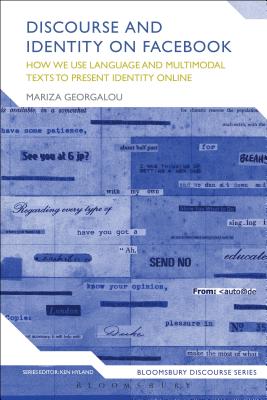This book features a discourse-centred online ethnography that provides authentic verbal and multimodal Facebook postings in a number of different languages, including Greek and English. These are complemented with insights from interviews with Facebook participants. The examples bring to life various engaging instances of self- and other-presentation on Facebook identifying the ways in which users can:
- locate themselves in terms of place and time;
- announce activities, share and broaden their expertise and buttress solidarity among colleagues and fellow students;
- communicate emotions, tastes, thoughts, opinions and assessments;
- control the flow of textual information on their Facebook profiles to secure their privacy.
Social network sites are dynamic online socio-cultural arenas which give users ample and unprecedented opportunities for self-presentation through the meshing of language with other semiotic modes. With a focus on Facebook, one of the most widely used online social network sites, this book brings together ideas and concepts related to language online, multimodality, and identity through five topical issues. These include place, time, profession and education, stance-taking, and privacy.
Focussing on discourse manifestations of identity, this book also shows how Facebook can function as a cathartic gateway for self-expression, a powerful grassroots channel, a digital memory bank, a tool for promoting one’s work, a platform to exchange information, a dynamic knowledge depository, a meta-friend, and a research tool.

 看圖書介紹
看圖書介紹









